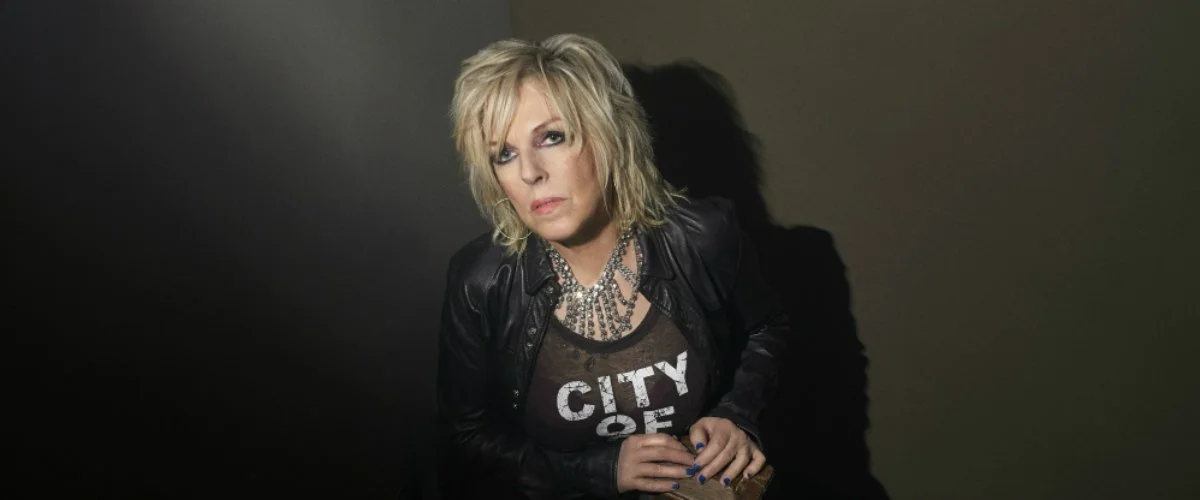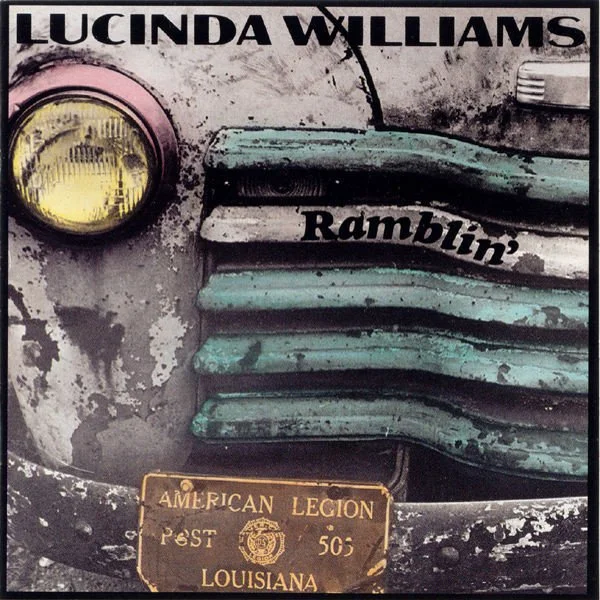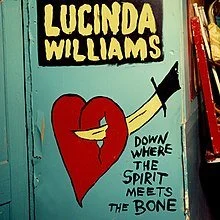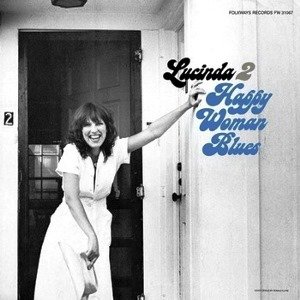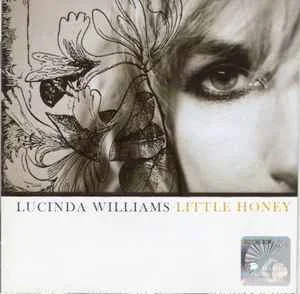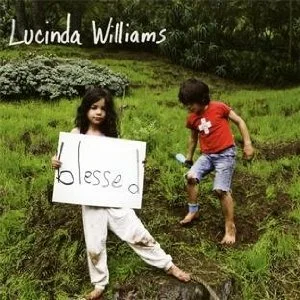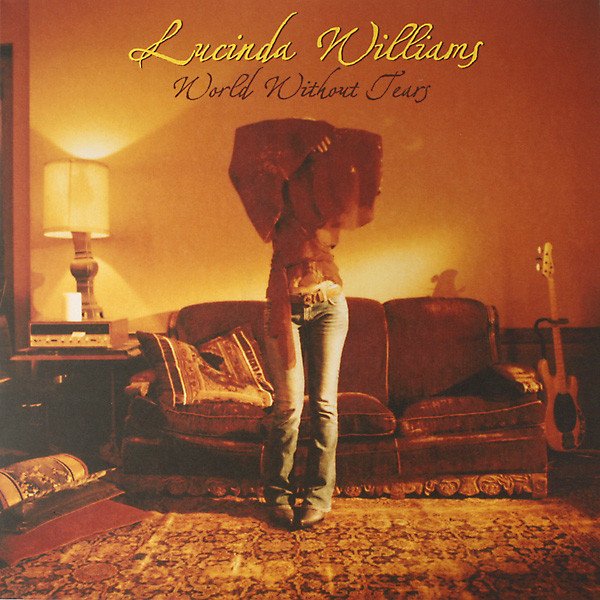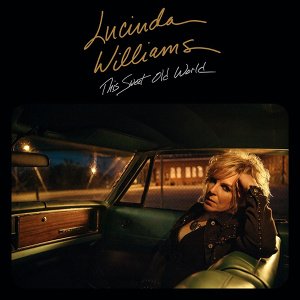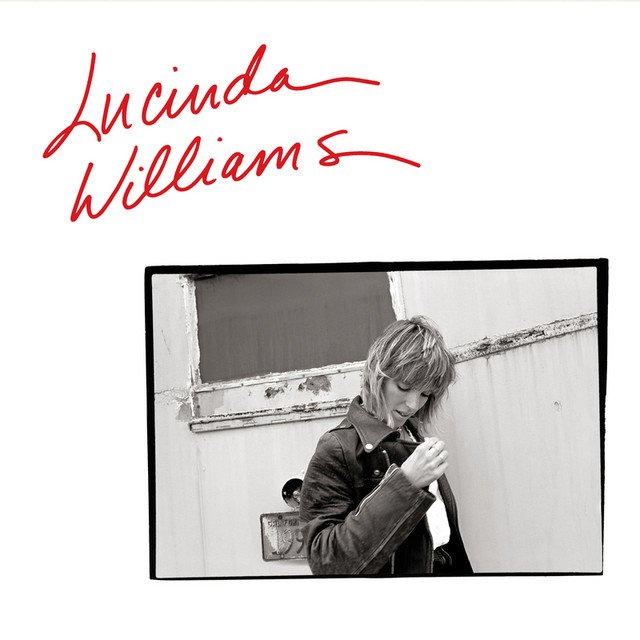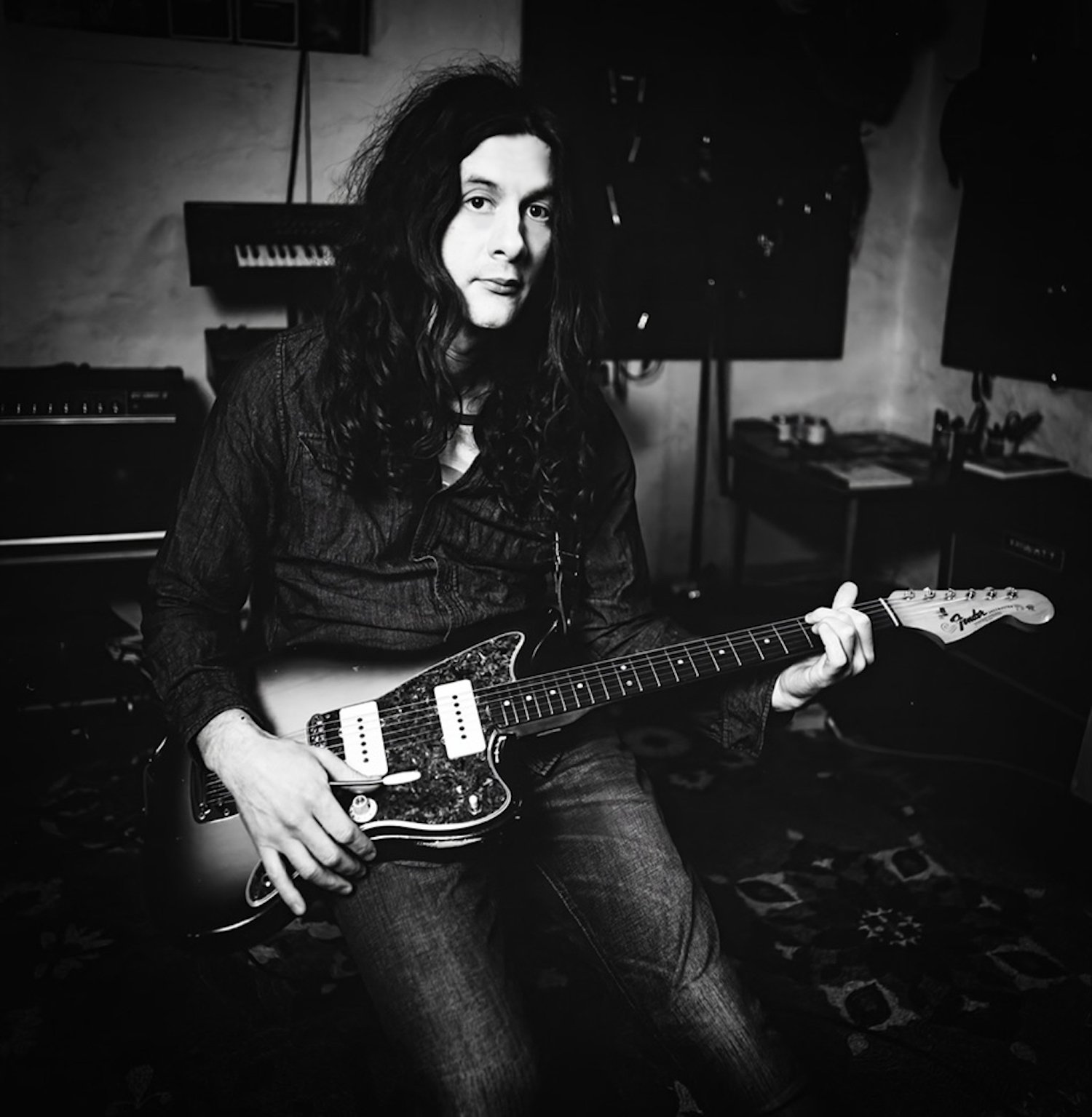Lucinda Williams Albums Ranked
For the past 40 years and change, Lucinda Williams has been responsible for some of the most progressive, empathetic music to come out of country music. A critically-acclaimed but commercially underappreciated artist, she enters her eighth decade with a surprisingly diverse discography that traverses just about every corner the genre. Most impressively, she’s invented a few of those corners herself—from her pop-leaning work of the 80s/90s to her breakthrough Car Wheels on a Gravel Road, she’s paved the way for new generations of talent. She’s also not showing any signs of slowing down, and while her albums can be hit or miss, she has gems ready for discovery on every one.
14. Ramblin’ On My Mind (1979)
As far as debut albums go, Ramblin’ is about as inauspicious as they come. Just a then-25 year-old Williams and a guitar, Ramblin’ sounds more like a Smithsonian recording project (“a real-life Louisiana gal singin’ the blues!”) than a Lucinda Williams album. You could blame it on the fact that all the songs are covers, but Odetta only sang covers and could still bowl a city over. There’s just nothing here—not the perfectly erudite guitar playing or Williams’ open mic night approach to blues—that leaves any sort of impression. She’d eventually go on to put out albums that were messy or overlong or more of the same, but Ramblin’ is the only time Lucinda Williams was ever boring.
13. Good Souls, Better Angels (2020)
Lucinda Williams may have started out as a Happy Woman, but boy oh boy is she pissed on Good Souls, Better Angels. This direct, punchy, politically-minded affair isn’t too far removed from what she’d been doing since Down Where the Spirit Meets the Bone, but the righteous anger that fuels Good Souls is miles away from the mild-mannered ruminations on that album. At its best (the tremolo’d waltz of “Good Souls” is an all-timer made even more powerful by her rusty razorblade of a voice), it’s transcendent and hopeful. But the temptation to constantly buck against Trump leads Williams into some of her worst tendencies as a writer throughout—clunky directness (“Man Without a Soul”), late-era Neil Youngisms (“Bone of Contention”), and even the unfortunate return of *sigh* rapping (“Wakin’ Up”, which has got to be the weirdest song she’s ever made). Occasionally excellent but just as often cringey, Good Souls is a pretty hard one to sit through.
12. Down Where the Spirit Meets the Bone (2014)
Something of a coming out party from the industry that she’d been working against her whole career, Down Where the Spirit Meets the Bone was Lucinda Williams’ first album for her own label, and ostensibly the first album she made with no external pressures or expectations. At 62 years old, she could finally do what she wanted to do, and judging by Spirit…, what she wanted to do was raw, scuzzy blues. This wasn’t necessarily new territory for her—Little Honey covered similar stylistic ground years before—but the breadth (104 minutes!) and immediacy of the backing band marked a new era in Williams’ oeuvre that continues today. The other big shift on this album is Williams’ voice, which had completely transformed into a Waits-ian growl by 2014. On earlier albums, her heavier moments were sweetened by her honey vocals; here, she’s all guts. More than nearly any other album she made, Spirit is a vibe album—it starts at a mid-tempo shuffle and doesn’t really stray too far in any direction. The highlights (gently shuffling “It’s Gonna Rain”, epic closer “Magnolia”) are there, but nestled within the 20-track sprawl of samey (but solid) tunes, they’re easy to miss.
11. Happy Woman Blues (1980)
How do you even talk about Lucinda Williams’ first two albums in comparison to what was to come? Recorded shortly after her debut, Happy Woman Blues shares Ramblin’s head-scratching relation to the rest of her discography, but Happy has one key thing that Ramblin’ lacked—Lucinda Williams songs. The sound is rooted firmly in 1980, but the rudimentary backing and production can’t wipe the shine off “One Night Stand” or “Lafayette”. Album highlight “I Lost It” was rerecorded nearly 20 years later for Car Wheels, which only goes to highlight how much the hokey instrumentation hamstrings the album. If I’m in the right mood, Happy Woman Blues scratches a twangy itch, but no one who listened to this album in 1980 would’ve been able to predict the heights Williams would hit on her follow up eight years later.
10. Little Honey (2008)
Nearly a decade before her first double album, Lucinda Williams recorded enough material to ask her label’s permission to combine West and Little Honey into one sprawling work. Obviously, the label balked, and at least for the sake of West, that was the right idea. Little Honey is a distinct work from that album’s rootsy, warm glow—it’s rougher around the edges, and probably the hardest rocking album she’d recorded at that point in her career. Unfortunately, rockin’ Lucinda isn’t anyone’s favorite version of Lucinda. Similar to 2014’s Down Where the Spirit Meets the Bone, the front half of Little Honey is just a little too samey, inspired by blues but not inspired enough to carry the whole album. The exception to that is the polarizing, stupid, and very horny “Honey Bee”, a delightfully delirious romp about pull-out sex that I can’t get enough of. Where Little Honey really shines, though, is in its quieter moments. “If Wishes Were Horses”, buried smack dab in the middle of the album, is on a short list of her best work ever.
9. Essence (2001)
Following the highest-profile and most critically acclaimed release of her career, Lucinda Williams returned with Essence, her quietest album by some margin. Within the context of her career, it reads as a weird left turn that she corrected with the more substantial World Without Tears. But in the broader context of female-centered music at the turn of the century, Essence fits pretty cleanly into the Lilith Fair-adjacent soft rock that women like Sarah McLachlan and Paula Cole were making at the time. If that sounds like faint praise, well…yeah. For as much as they’ve been cast as relics of a specific time, people forget that Sarah McLachlan and Paula Cole could also write the hell out of a song. It’s the plodding quietudes of the music that elicit more of a shrug than other, more questionable trends at the time. Lucinda’s songwriting is fine here, but it sounds like she’s OD’d on Sleepy Time Tea, and as such is the only album of hers I’d describe as maudlin. Songs like “I Envy the Wind” and “Blue” cover a lot of the same emotional territory as “Metal Firecracker” or “Fruits of My Labor”, but paired with monotonous autumnal shrugs of backing tracks, they sound more primed for freshman dorm rooms than road trip singalongs. The production is consistently beautiful—Essence isn’t a hard album to listen to—but it’s a weird blip of a record during a period when Lucinda didn’t make blips.
8. Blessed (2011)
By 2011, Lucinda Williams was in a bit of a rut. Her reputation as a perfectionist who spent years rerecording songs until they met her standards flew out the window once she picked up the pace of her output in the early 2000s, and by the time she hit West, she’d found a formula of blues/country/folk and the right balance of rockers/ballads that it seemed like she’d ride into the sunset. Based on that narrative alone, Blessed is a bit faceless in her discography, and the music does little to set it apart otherwise. You know what you’re getting here: the gentle waltz of “Sweet Love”, the bluesy kiss-off of “Buttercup”, the weepy wrap up of “Kiss Like Your Kiss”. It’s rarely bad, but it does it make much of an impression. She’d done everything here before, and she’d done everything here better.
7. The Ghosts of Highway 20 (2016)
Ghosts was mostly cut with the same band as Down Where the Spirit…, the second double album in two years from what was an increasingly furious rate of recording from Lucinda Wiliams. But unlike the previous album’s steady, plodding pace, The Ghosts of Highway 20 earns its massive runtime. Nearly everything Williams had done since her early-90s work is represented here (no pop crossovers, sorry), and though it’s still firmly rooted in the blues, the stylistic variation is key to making this feel more like a traditional double album than an overlong single disc. Opener “Dust” is a rousing slow build that immediately eclipses anything from the previous album, gentle lullaby “Place in My Heart” would’ve fit in nicely on Essence, and the fevered, psychedelic title track transforms Williams into a prophetess wailing across the bayou. It’s the best, most consistent songwriting she’d displayed since World Without Tears, and the clear standout amongst her most recent work.
6. Sweet Old World (1992)
Sweet Old World has the unenviable position of being released smack dab in between two stone-cold classics, but even taken out of the context of her discography, it reveals itself as a transitional album. On one hand, you can hear the echoes of Lucinda Williams’ country-radio-gems-that-never-ended-up-on-the-radio sparkle, with barroom reverb propelling lost classics like the jaunty yearning “Six Blocks Away” and aching suicide ballad “Sweet Old World”. But this is also the first glimpse of the bluesy barroom queen Williams would transition into on her post-2000 releases. Songs like “Pineola” and “Hot Blood” are the closest she’d come to rock at the time, but the 90s production keeps them from hitting the heights she’d find around the bend. Curiously, Williams seemed to think the same—it’s not the last time she’d release this particular album, and when she remade it, she found gold.
5. World Without Tears (2003)
Is there a more perfect Lucinda Williams song than “Fruits of My Labor”? An aching, poetic, heaving tears-in-my-beer waltz, it marked a new high watermark in any number of ways for Williams—lyrically, musically, vocally, it’s the best thing she’s ever made. Coming off the pretty but slight Essence, it showed that she could translate the same feelings that led to that album’s windbreaker of a sound into something rooted and moving, a master rediscovering her gift. Follow-up “Righteously” is a sexy, simmering slink of Lauryn Hill-inspired (seriously) blues, and the album just keeps bouncing between those two moods: down in the dumps sadcore shocked back to life with, as she puts it on one fabulous cut, “Real Live Bleeding Fingers and Guitar Strings”. As a listening experience, it can be a little jarring, but once you get into the flow of the album, it reveals itself as about as lively, realistic a breakup album as you can imagine. Unfortunately, tics that would come to sink some of her later work first rear their heads on World Without Tears—the middle one, two punch of guttural, awkwardly direct “Atonement” and embarrassing white lady rapping of “Sweet Side” nearly sink the album after its remarkable initial run. There’s enough gold here to overlook the bad stuff, but with some editing, she could’ve had another masterpiece on her hands.
4. West (2007)
West is the first Lucinda Williams album that sounds like “another Lucinda Williams album.” Up to that point, she’d covered a surprisingly diverse set of sounds, hop-scotching from Appalachian folk to country pop to blues and everywhere in between. On the heels of World Without Tears, West found Williams settling into a comfy, rootsy balance just left of country. But despite the lack of surprise and innovation in sound, West is a warm, inviting record that’s as down-the-middle as any record she ever made. From the mantra-like opener “Are You Alright?” (one of her best songs of the decade) all the way through the clear-eyed closing notes of “West”, there’s hardly a misstep to be found, the artist clearly playing to her strengths without the pressure of creating another masterpiece. That makes West a less exciting record than her more ambitious albums, but one that’s consistently easy to love.
3. This Sweet Old World (2017)
Even Lucinda Williams knows she doesn’t hit it out of the park 100% of the time. Sweet Old World (1992) has some truly lovely songwriting on it, but its production is surprisingly stagnant compared to her self-titled album a few years before, the songs weighed down with too much polish. Following a remarkably prolific couple of years, Williams’ decision to re-record the album in full with the same blues assassins that powered Down Where the Spirit… and Ghosts of Highway 20 is a head scratcher on paper, but is absolutely ace in its execution. Her weathered voice finds new corners in each song, centering them with a gravitas that she hadn’t developed by her late-30s. While nearly every song shines in this new context, the ones that benefit most from the transformation are the ones that wear their hearts most explicitly on their sleeves (the now-titled “Drivin’ Down a Dead End Street”, the title track). Who knew that when Sweet Old World came out in 1992, it was 25 years ahead of its time?
2. Lucinda Williams (1988)
“I drove my car in the middle of the night, I just wanted to see you so bad!” With that joyful yip, the real Lucinda Williams finally crashed onto the stage. You can hear the eight-year gap between Happy Woman Blues and Lucinda Williams all over her voice, but I’ll be damned if she doesn’t sound a decade younger here than she did on her blues-lite first two albums. Part of the credit goes to the production, which set the template for 90s country a couple of years before the decade started. The sound was cutting-edge at the time and planted Williams in the same camp as other forward-looking 80s country stars (albeit just outside the mainstream), and the rest of the pack took notice—Mary Chapin Carpenter took “Passionate Kisses” all the way to the Grammy’s five years later with copycat production. But the other key to the album’s youthful energy is how confidently and competently Williams jumps across styles in her writing and performances. “Big Red Sun Blues”, “Am I Too Blue”, and “The Night’s Too Long”—all album highlights—are just plain fun, not to mention infinitely more authentic-sounding than Williams’ prior dalliances with Delta blues and Appalachian folk. When she ends the album with “I Asked for Water (He Gave Me Gasoline)”, a gender-flipped take on a Howling Wolf song, its effect is a wink—”remember when I used to do this shit?”, you can imagine her laughing. That’s the magic of Lucinda Williams: as soon as she stopped pretending to be old, she tapped into something timeless.
1. Car Wheels on a Gravel Road (1998)
Was there ever a question? Rightfully acknowledged as a masterwork, Car Wheels on a Gravel Road overshadows the rest of Williams’ discography to a distracting degree, and while there’s plenty more from her that’s worth holding close, this album’s reputation is warranted. From beginning to end, Car Wheels is a sumptuous ride through every strength Williams had built by that point—masterful control over her whiskey voice (the lip-biting lust of opener “Right in Time”), place-specific songwriting that tapped into universal experiences (the bluesy road trip sing-along of a title track), a commanding vision of alt-country’s future (the sparse shuffle on “2 Cool 2 Be Forgotten”)...and that’s just the first three songs. She resuscitates old songs into crackling howlers (“I Lost It”), slinks and slithers through obsessive love on the skeletal “Can’t Let Go”, and lets us ride passenger side for the painfully vulnerable rush of “Metal Firecracker”. (“All I ask/Don’t tell anybody the secrets I told you” guts me every time.) There’s an Emylou Harris here and a Steve Earle there, but they’re intentionally placed for maximum impact inside of Lucinda’s immaculate, empathetic kaleidoscope of an album. By the time the album ends in bleary-eyed “Jackson”, the only logical next step is to start it up all over again.

